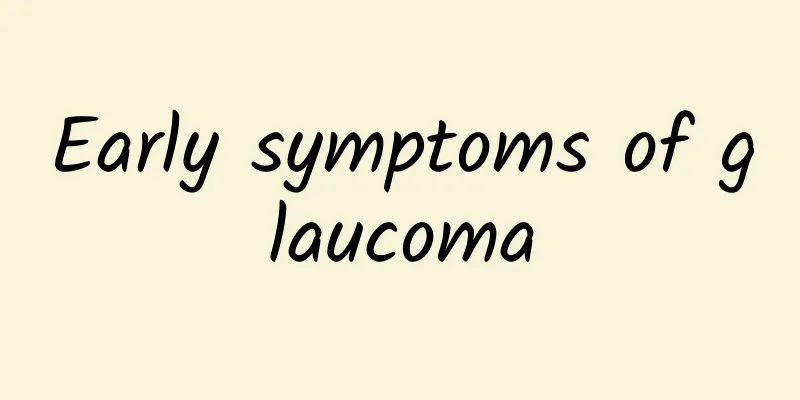Will my breast milk be reduced during menstruation?

|
Breastfeeding is the first choice for many families, and the quality and quantity of breast milk will change with the mother's body, so the mother's physical condition has a great impact on breast milk. If the mother takes medicine when she has a cold, the medicine will enter the blood through the mother's digestion and absorption, and then be passed to the baby through breast milk, which is not good. Therefore, the impact of the mother's physical condition on breast milk cannot be ignored. By the same token, if the mother has menstruation, it will also have an impact on breast milk. Normally, women will not have their period immediately after giving birth, but for some women, their uterus recovers quickly and their period comes quickly. Some women start menstruating about two months after giving birth. When menstruation comes, mothers will worry, will the breast milk supply decrease? Will my breast milk decrease during menstruation? After ten months of pregnancy and the birth of the baby, your period, which you haven’t seen for a long time, will soon come knocking on your door. The time of resumption of menstruation may be early or late. Some women may have menstruation as early as one month after the baby is one year old, while others may not resume until the baby is one year old. Some mothers' "close relatives" come at an inopportune time. During the breastfeeding period, the resumption of menstruation will affect the quality of milk. But no matter when menstruation resumes, it is not a reason to wean. According to outpatient statistics, it is very common for new mothers to have their first menstrual period during the first prenatal check-up 42 days after delivery, but many people will have a gap of two to three months or even longer before their next menstrual period after the menstruation resumes. This is actually caused by "breastfeeding". For new mothers who do not breastfeed, their menstruation will generally resume within 6-10 weeks after delivery. However, for new mothers who breastfeed, the time of resumption of menstruation is extremely variable and may resume at any time within the 2nd to 18th month after delivery, with an average of 6-8 months. Some new mothers even do not have a menstruation during the breastfeeding period. Generally speaking, breastfeeding will delay the onset of menstruation. The longer the breastfeeding period, the more times the nipple is sucked, or the larger the baby is, the stronger the sucking force of the nipple is, which is conducive to increasing the level of prolactin in plasma, which is most effective in inhibiting the resumption of menstruation. If breastfeeding is stopped early, the level of prolactin in plasma will decrease, the effect of inhibiting menstruation will decrease, and menstruation will resume quickly. Breastfeeding precautions 1. Breastfeeding posture Correct feeding posture is important for breastfeeding When feeding the baby, the mother can completely relax herself, sit or lie in a comfortable position, and use pillows or quilts to support herself or the baby during breastfeeding. Let the baby be close to the mother, with his face facing the mother's breast and his nose facing the nipple, so that the baby can suck comfortably. 2. Pay attention to night feeding Many mothers feel very tired during the confinement period. Coupled with the constant feeding and changing diapers for their babies during the day, they feel even more sleepy at night. New mothers must be careful when feeding their babies at night. If they feed while lying down, they must avoid blocking the baby's nostrils with their breasts. 3. Breastfeeding time It is recommended that newborns be fed on demand, generally every 2 to 3 hours during the day. In the first 3 months after the baby is born, breastfeeding needs 8 to 10 times every 24 hours. Breastfeeding often helps a mother's body produce more milk and prevents her breasts from becoming too full. |
<<: Will a cold reduce milk supply?
>>: Bilateral corona radiata cerebral infarction
Recommend
What position is more comfortable during late pregnancy?
It is not easy for every woman to be pregnant for...
How to drink water to clean the intestines and remove stool, how to use salt water to clean stool
Due to unhealthy lifestyle habits and irregular d...
Why do young people have white hair?
"Premature graying of hair" refers to t...
Can autism be cured?
Children's health is a topic of great concern...
What kind of soup is good with pork ribs?
Pork ribs are a delicacy loved by many people. Po...
Can I get vaccinated for jaundice?
It is very common for newborns to have jaundice b...
The difference between intestinal spasms and colic
Intestinal spasm and intestinal colic are two dis...
What to do if there is a black circle around the mouth
If the area around your mouth turns black, you sh...
How to treat cholecystitis
Cholecystitis is actually what we know as cholecy...
What are the whole grains that are good for the spleen and stomach? Did you know?
Black sesame "text-indent: 2em;">For ...
Symptoms of poor peripheral circulation?
Poor peripheral circulation is mostly caused by t...
Formaldehyde can induce leukemia in children, but this plant can definitely cure it!
Now that our quality of life has improved and liv...
The efficacy and function of wild rose root
Chinese medicinal materials are unique medicines ...
How does Chinese medicine look at tongue coating? Teach you how to tell whether you are healthy based on the tongue coating
Whether the color of the tongue coating is normal...
How long should I boil Chinese medicine?
When we take Chinese medicine, we usually decoct ...









